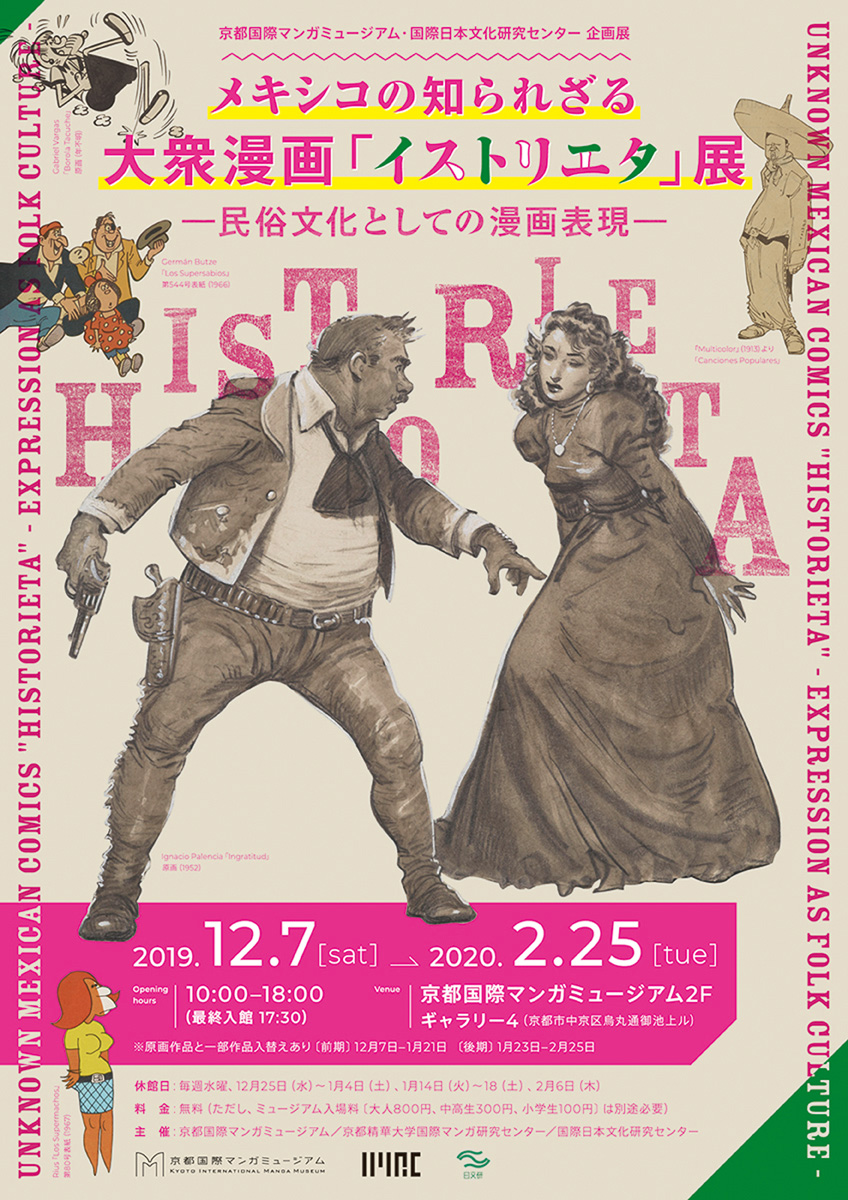
The Kyoto International Manga Museum, in conjunction with the International Research Center for Japanese Studies, is delighted to present an exhibition introduction the history and world of ‘historieta’, a comics culture that originated in Mexico.
-
ClosuresEvery Wednesday
December 25–January 4, January 14–January 18 and February 6 -
Fee
-
Venue2F Gallery 4
-
OrganizationKyoto International Manga Museum
Kyoto Seika University International Manga Research Center
International Research Center for Japanese Studies
From the 19th to the 20th Century in Mexico, ‘historieta’ spanned caricatures, leisure reading material, advertisements, and education, expanding into a form of popular culture comics. This exhibition highlights the history and development, variety of genres, and present-day form, alongside the original artwork, magazines and newspapers of each period. Please enjoy this exploration of comics as a form of folk culture that spread and connected strongly with the lives of townspeople throughout Mexican society.

* This exhibition is held as a research output of the project ‘Popular culture diachronic – Creating a new Japanese image through international studies’ by the International Research Center for Japanese Studies.
-Exhibition content-
Approximately 100 display items, including original artwork, newspapers and magazines.
◆ The history of ‘historieta’
A look back on the history of ‘historieta’, traced alongside original artwork and materials of each era, from their roots in the 19th Century to their establishment at the beginning of the 20th Century; their golden age during the Second World War; and the developments of the publication industry in the postwar period.*The original works will change during the period.
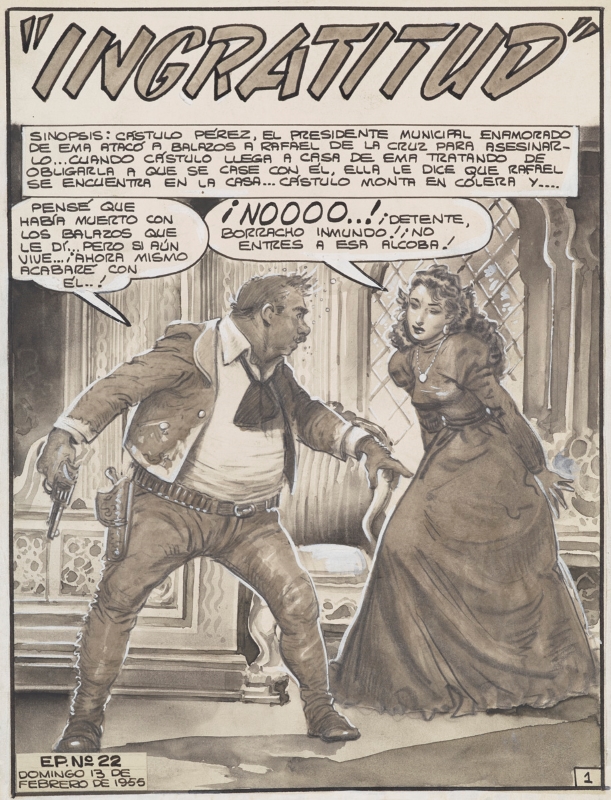

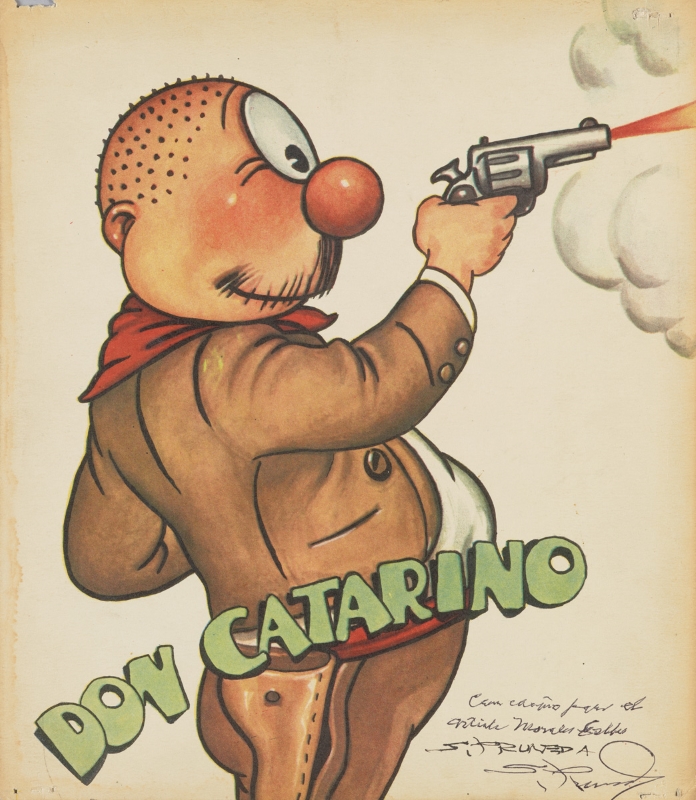
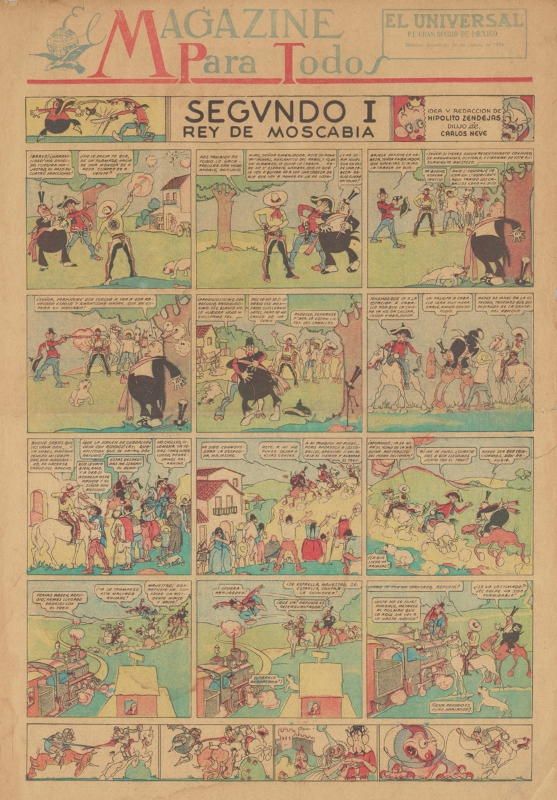
◆ The diverse world of ‘historieta’
The various world of ‘historieta’ is divided into seven themes: humor, romance, heroines, children, heroes, charro (Mexican cowboys), and education, each explored separately.
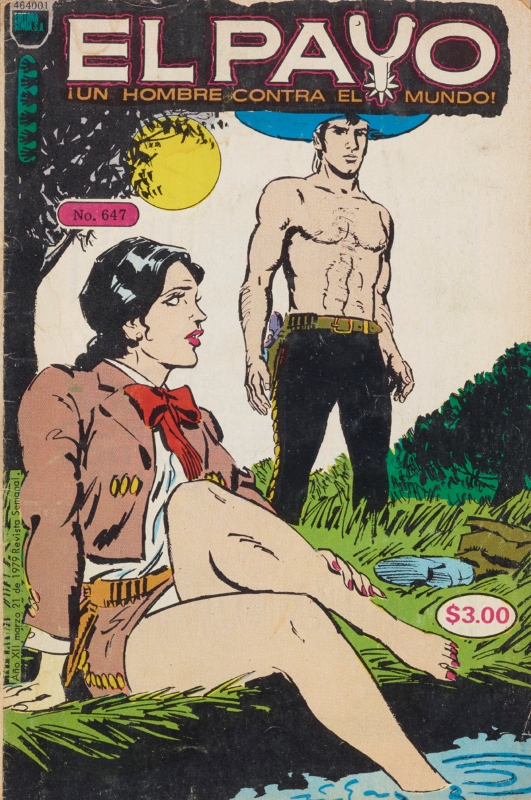
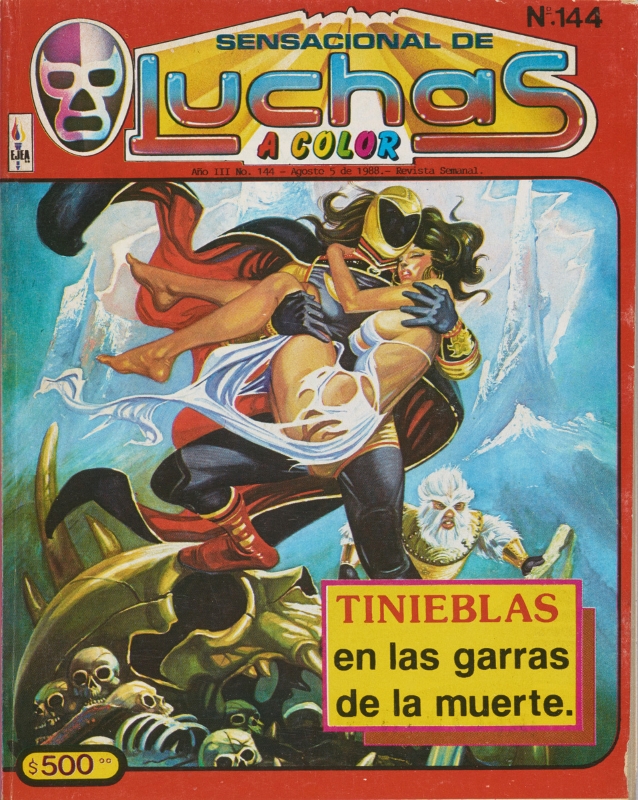
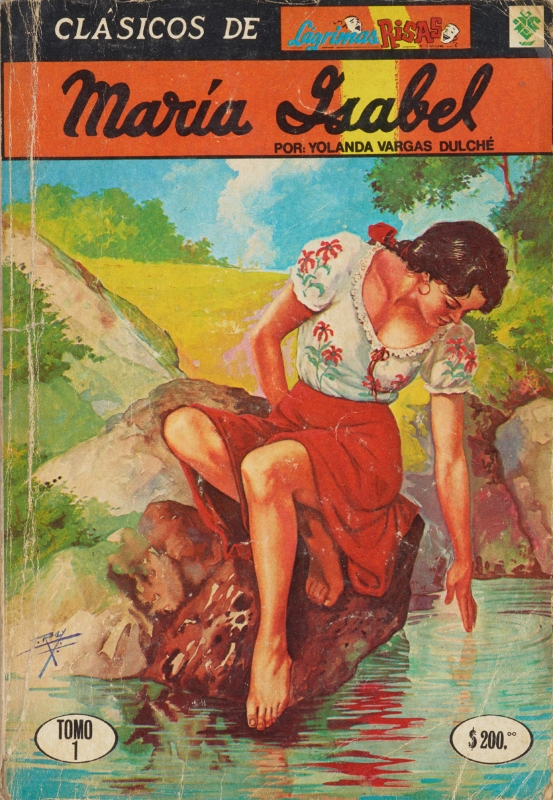
◆ ‘Neo moneros’ and modern ‘historieta’
A new generation of ‘historieta’ authors (moneros) are active in Mexico today. Based on their work, we will introduce modern historieta.
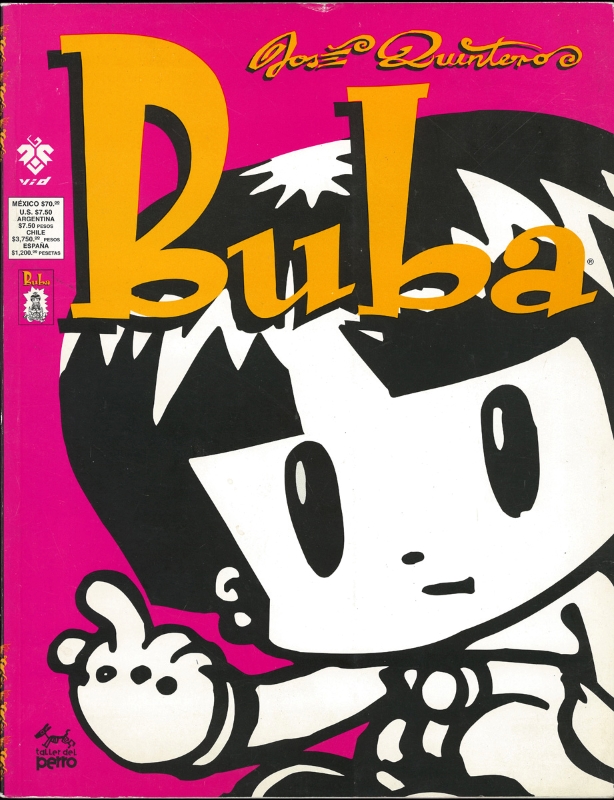
*Please note that the schedule, performers, and contents are subject to change.